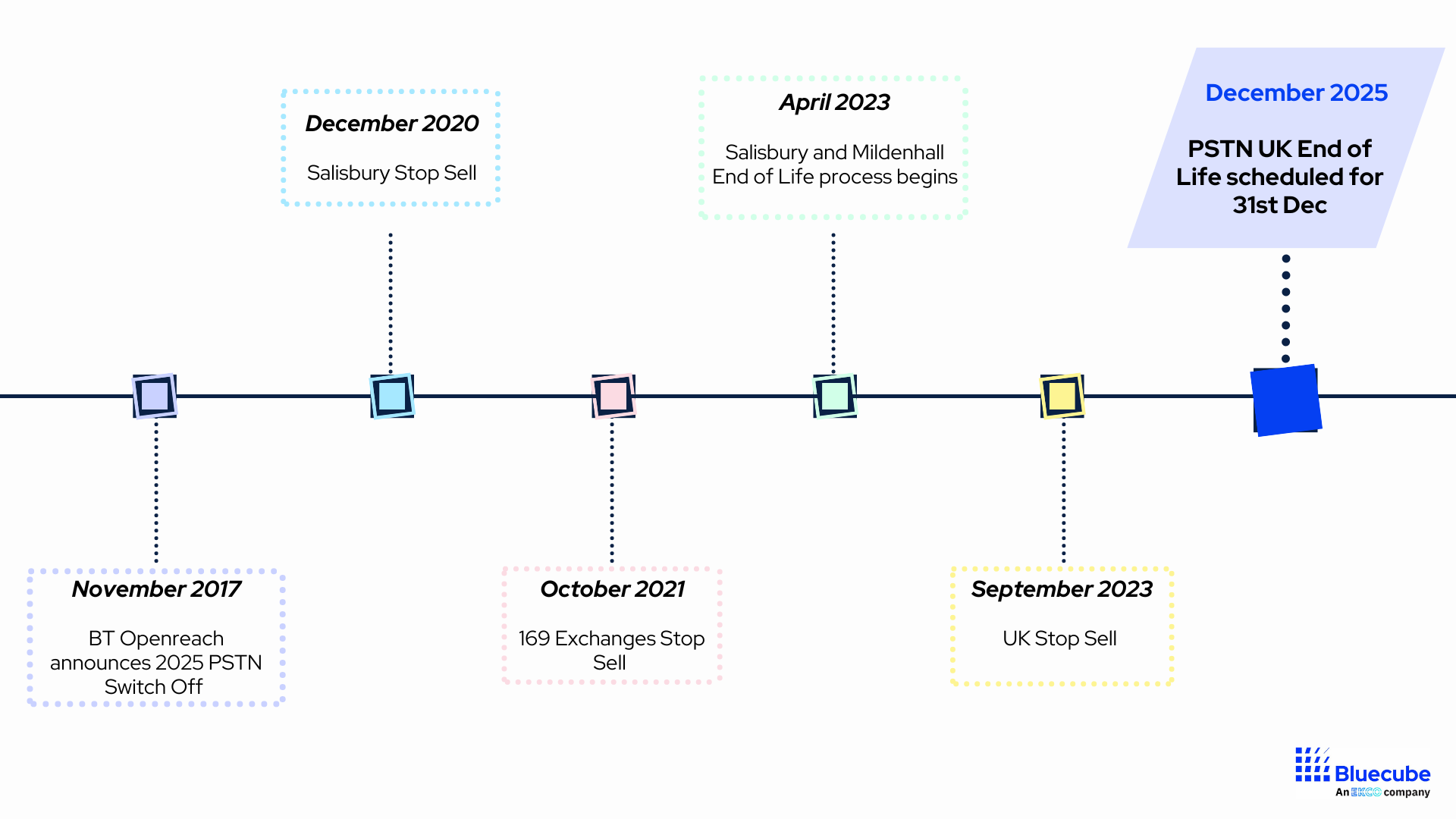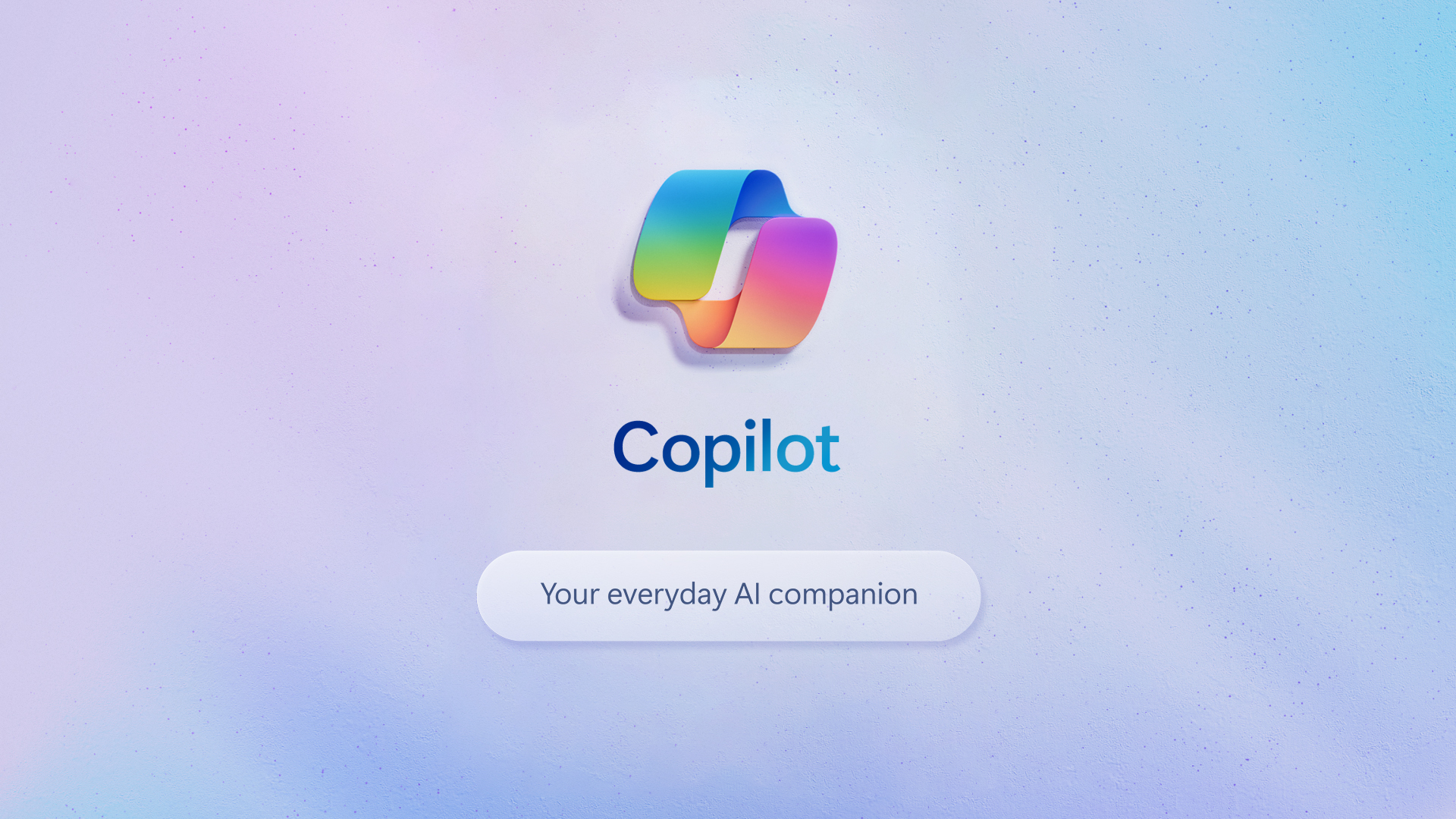We can all recognise the rapid evolution of technology in recent years, including the widespread adoption of smartphones and smart devices, applications, and cloud computing. However, the often-unseen infrastructure, like communication lines, remains vital and is now at a stage of needing an evolution also, to meet its ever-increasing demand and to reflect the ever-evolving technological landscape. This is why BT announced a phased approach for the PSTN (Public Switched Telephone Network) switch-off in 2017. By December 2025, the UK will switch to VoIP (Voice over Internet Protocol), which means using fully cloud-based solutions.
The PSTN comprises the world's circuit-switched telephone networks and operates through analogue phone lines. It traditionally relies on underground copper wiring, some of which have been in place since the 19th century, or, more recently, fibre optic cables to transmit information between different locations. While the PSTN served us well as a foundation of the UK’s telephony system, its limitations are undeniable. Slow speeds, high maintenance costs, and limited functionality pale in comparison to the agility and dynamism of VoIP.
Built upon internet infrastructure, VoIP offers clear voice calls, many advanced features, and cost-effectiveness, propelling us towards a future of enhanced communication that can be shaped around our needs and growth.
Here are some questions answered about the upcoming PSTN switch-off:
When is the PSTN switch-off happening? The complete switch-off is scheduled for 31st December 2025. By this point, every phone line in the United Kingdom will be digitised using IP as any devices or technology using PSTN will no longer be in service.

The transition has been happening for some time now, and despite it feeling sudden, BT announced the switch-off would be happening back in 2017. By 2020, 'stop sell' came into effect; this means broadband and telephone providers stopped selling copper cable-based products and by September 2023 this was completed across the UK. As this was taking place, BT has been rolling out digital-only home phone services and will continue to until Summer 2024. However, this does not involve other products which may rely on PSTN.
What does it mean for me? The switch-off affects everyone, both business and home, so it's important to begin considering and making changes today. If you currently use a traditional landline phone or desk, this switch will eventually affect you, and many other devices we use daily will also be affected. As well as landline services, the PSTN also provides standard ADSL (Asymmetric Digital Subscriber Line) and FTTC (fibre-to-the-cabinet) broadband services via fibre optic cables, meaning all of these will have to go through a switch. You'll need to switch to a VoIP-based service before the end of 2025 to avoid extra costs and difficulties.
Once the complete switch-off of PSTN occurs, all conventional PSTN lines—like analogue or digital phone connections—and ISDN phone systems utilised by businesses, alongside older internet connections like ADSL and FTTC broadband, will become entirely obsolete.
Does the PSTN switch-off affect devices other than phones? Anything that currently uses the old analogue phone networks and all non-voice services connected to PSTN or ISDN lines will need to move to an internet-based service. This includes alarms, door entry systems, lifts, CCTV, electronic point-of-sale tills, and fax machines. Many rely on the PSTN and will need updating or switching to internet-based alternatives.
What is VoIP? VoIP will essentially be the replacement for PSTN. VoIP is entirely digital and uses your internet connection to transmit voice calls and data. It's like the technology used for messaging and video call services like Skype and WhatsApp. Built upon internet infrastructure, VoIP offers crystal-clear voice calls, many features, and cost-effectiveness, propelling us towards a future of enhanced communication.
What about broadband? The PSTN switch-off affects standard ADSL and FTTC broadband services. If you have one of these types of broadband, you'll need to upgrade to a full-fibre connection before the switch-off.
What happens to my phone number? The great news is that your business can keep this as you switch over, allowing for a seamless transition for you and your customers.
Is the PSTN switch-off happening worldwide? It’s already happening! Estonia and The Netherlands have already switched off their PSTN networks and moved to digital completely and other countries such as Germany, Sweden and Japan are nearly there.
What are the benefits of VoIP?
Enhanced call clarity: No more dropped calls or grainy audio. VoIP delivers high-quality audio which is great for facilitating conversations that feel like you're in the same room as the person you're talking to.
Improved experience and features: Video calling, call forwarding, voicemail to text – it's all there with VoIP. You no longer have to juggle multiple devices or be held to a wired phone to take your calls. It presents a comprehensive array of advanced functionalities extending beyond traditional phone calls. These include file sharing, instant messaging, call recording, CRM integration, and other additional capabilities.
Cost-efficiency: VoIP cuts out the middleman and uses your existing internet connection, often making it cheaper than traditional landlines. It is also worth noting that staying on PSTN past the cut-off can mean you are later faced with substantial call fees and the costs of migrating to cloud solutions will also be much higher.
Enhanced productivity: Communications over the cloud allow for improved call quality and collaboration features, streamlining communication and boosting efficiency (Source: PwC, 2023). As well as this, with video calling, call forwarding, and voicemail to text all being held in the cloud, you no longer have to juggle multiple devices or be held to a wired phone to take your calls.
Increased flexibility: VoIP facilitates remote work and collaboration, empowering businesses to adapt to the changing landscape and it’s completely scalable with your business’s growth. They can be accessed from a plethora of devices meaning you no longer need to rely on a landline or wired desk phone; this also means you can take calls at any time, from anywhere (within reason).
Environmental sustainability: Replacing copper wires with digital infrastructure reduces energy consumption and carbon footprint (Source: Ofcom, 2023). If improving your ESG standpoint is on your business' agenda this year, implementing these changes sooner rather than later will be a great move.
Empowering your transformation
Navigating this shift might seem daunting, but numerous resources are available. Consult your MSSP or phone provider and they can help ease the transitions for you. Remember, early planning ensures a smooth transition and unlocks the potential of VoIP technology. The PSTN switch-off isn't an obstacle, it's an opportunity – to embrace a future of clearer connections, enhanced collaboration, and limitless possibilities. So, unplug from the past and dial into a digital future of communication excellence.







